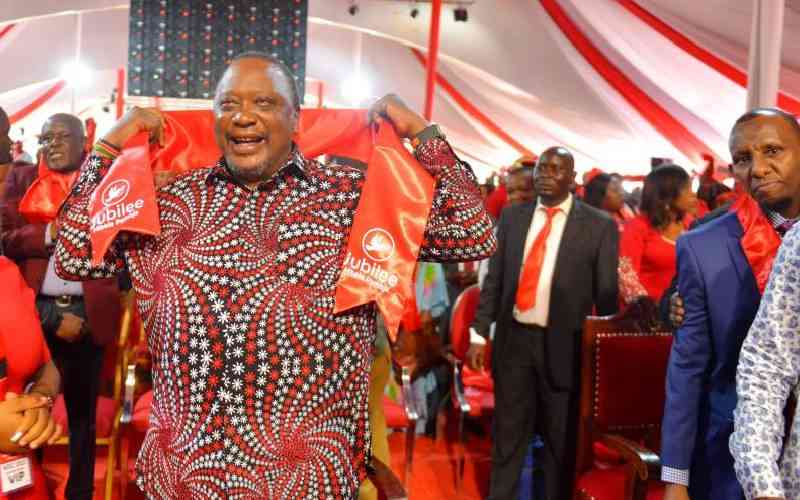×
The Standard e-Paper
Join Thousands Daily

He does not need introduction among Kenyans having been their President and Commander-In-Chief of the Defence Forces for a decade.
But powerful as he was during his tenure, Uhuru Kenyatta is engaged in a seemingly lost rearguard battle to salvage what is left of the Jubilee Party that propelled him to power.